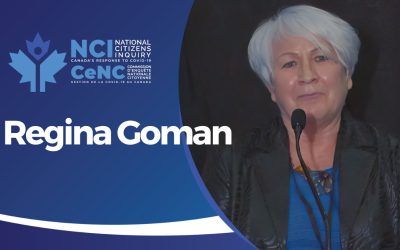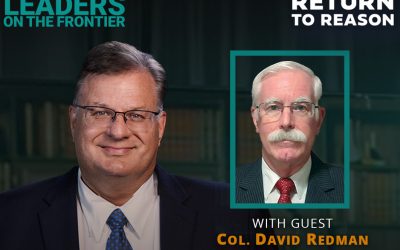Very few critics of the Iraq War have their paychecks issued by the Department of Defense.
David Henderson does. As an economics professor at the Naval Postgraduate School and former advisor to President Reagan, Henderson shatters the stereotype that individuals who comprise the anti-war movement all drive hybrids and listen to NPR.
How does one reconcile being an employee of the military and a columnist for Anti-War.com? “It’s uncomfortable at times,” he says of some students’ reactions to his vocal opposition to current military campaigns. “There can be a lot of tension and emotion in our discussions, people can get very charged up. But I don’t mind. Those are often really great discussions.”
He’s quick to credit his superiors at NPS for fostering an atmosphere conducive to intellectualism. “There’s an appreciation for diversity of opinions. We have the freedom to think, and they allow us plenty of academic freedom.”
Henderson has used that freedom to amass some impressive credentials. He accepted the position at NPS in 1984 after serving as an energy expert on Reagan’s Council of Economic Advisors. Since then, the longtime Pacific Grove resident has been a frequent contributor to the Wall Street Journal and Fortune magazine. A research fellow at the prestigious Hoover Institution at Stanford University, Henderson has authored two books and served as editor for two editions of the Concise Encyclopedia of Economics.
A common thread throughout all of Henderson’s work is a deep skepticism about the effectiveness of government. As a strong proponent of economic, political, and social freedoms, he opposes virtually all government actions that interfere in the lives of individuals. Even though public officials may have noble intentions, he says, the net effect of most government directives is limits on people’s basic liberties.
The Iraq War is no exception. “It’s just another government program, albeit it one of the more destructive and expensive ones,” he says. “It was sold to the public on the basis of good intentions, that we’re going to get rid of WMDs and build democracy in Iraq…but like a lot of government programs, it’s done a lot of harm to the very people it was designed to help.”
Henderson will be a speaker at Saturday’s Peace Feast, a benefit function to honor Rep. Sam Farr’s efforts to end the Iraq War. The event is sponsored by the Peace Coalition of Monterey County and Libertarians for Peace, an organization co-founded by Henderson and local real estate agent Lawrence Samuels.
It isn’t just Farr’s opposition to the Iraq War that Henderson and Samuels admire. Samuels points to Farr’s resistance to the Patriot Act and torture.
“He’s not just anti-war,” Samuels said of Farr, “he’s a believer in human rights and civil liberties.”
Henderson, ever the economist, also noted that Farr voted in favor of The North American Free Trade Act and to eliminate the estate tax. “Not a lot of people on the left like to hear that, but I think that’s Sam at his best.”
In opposing war and promoting free-market capitalism, Henderson often finds himself with few allies. “Both the conservatives and the leftists don’t like you,” he says, chuckling. “It’s hard to talk to conservatives about the war, and it’s hard to talk to the left about economic freedom.”
But capitalism and non-interventionist foreign policy go hand-in-hand, he says. Just as the government shouldn’t intervene in the economic affairs of its own citizens, he says, it also shouldn’t intervene in the political affairs of foreign nations.
It’s a belief that originated 200 years ago with Adam Smith’s legendary manifesto, The Wealth of Nations. Smith, widely considered to be the father of free-market capitalism, sharply criticized Britain’s imperialist foreign policy.
“He was very anti-colonial,” Henderson says. “He wasn’t so much a pacifist, but a believer in peace, a believer in non-interventionism and not using military power to control other people’s countries.”
Like Henderson, Smith was skeptical of government. It wasn’t a moral objection, but rather a calm and cold calculation of cost and benefit. The benefits of imperialism went to a small number of influential special interests, but the costs were diffuse, spread among the entire populace.
“The incentive problems are the same,” Henderson says, drawing parallels with current U.S. foreign policy. “Special interests play a disproportionate role, and politicians don’t fully consider what’s in the best interests of the people.”
THE PEACE FEAST FOR SAM FARR HAPPENS SATURDAY, MARCH 29.


